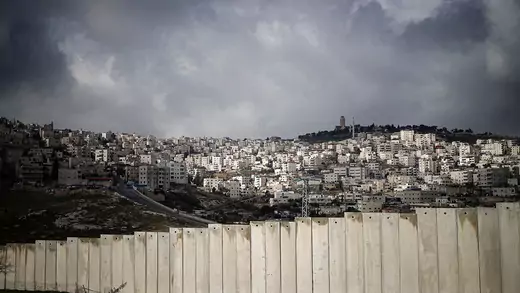Philip H. Gordon
 By announcing that Israeli settlements do not violate international law, the Trump administration continues a pattern of policy shifts that further weakens the prospects for Palestinian statehood.
By announcing that Israeli settlements do not violate international law, the Trump administration continues a pattern of policy shifts that further weakens the prospects for Palestinian statehood.
How significant is this announcement, and what is its basis in international law?
For decades, U.S. administrations have avoided calling Israeli settlements in the West Bank “illegal”—the position of much of the rest of the world—but they never formally repudiated a 1978 legal opinion that such settlements are inconsistent with international law. Until now, the United States had signaled its opposition to settlement activity, calling it “illegitimate” or an “obstacle to peace.” By announcing the view that settlements are not necessarily inconsistent with international law, the Donald J. Trump administration is signaling a reduction in opposition to Israeli settlement expansion. What’s odd is that the administration didn’t provide a legal explanation of its decision or clarify why it disagrees with the traditional interpretation of the Fourth Geneva Convention’s ban on settlements by occupying powers. In that sense, the announcement is much more a political statement than a genuine interpretation of international law.
How many West Bank settlements are there and will Israeli settlement activity now expand?
Around six hundred thousand Israelis live in the West Bank and in East Jerusalem, beyond Israel’s 1967 borders, on hundreds of separate settlements and outposts. It’s not clear whether this announcement will have a significant effect on settlement activity, which was already proceeding without much opposition from Washington. But if there was already a yellow light from the United States for settlement expansion, the administration just turned it green.
Is this announcement part of a broader policy shift? Why did the administration announce it now?
The announcement is consistent with the Trump administration’s systematic alignment with Israeli positions on controversial matters regarding Israel’s relationship with the Palestinians. These include recognizing Jerusalem as Israel’s capital, shutting down the Palestinian Liberation Organization office in Washington, merging the U.S. Consulate General in Jerusalem—which handled relations with the Palestinians—with the embassy, eliminating U.S. economic assistance to the Palestinians, and recognizing Israel’s annexation of the Golan Heights.
It appears this announcement—an election-year gift to Trump’s political base—was in the works for many months, but it is notable that it comes on the heels of a ruling last week by the European Court of Justice that all products made in West Bank settlements must be clearly labeled as such. The State Department criticized that ruling, and yesterday’s announcement on Israeli settlements clearly moves U.S. policy in the opposite direction.
Some have argued that prospects for a two-state solution are effectively dead and that the focus should now be on a single shared state in which Israelis and Palestinians have equal rights. Is that feasible?
An expansion of West Bank settlements—especially those that inhibit the territorial contiguity of a potential Palestinian state—certainly makes a two-state solution less likely. That’s why U.S. administrations have traditionally opposed them. More and more Palestinians, particularly young Palestinians, are giving up on the notion of separate Palestinian and Jewish states and have begun calling for equal rights for all citizens within a single state. It is an attractive vision, but I don’t know anyone who thinks it is realistic or politically viable. More likely is a Jewish state that limits the rights of Palestinians, a notion that makes many Americans, Israelis, and Palestinians deeply uncomfortable. Pompeo’s suggestion that this announcement somehow “increased the likelihood” of a peace settlement is downright bizarre.
No comments:
Post a Comment